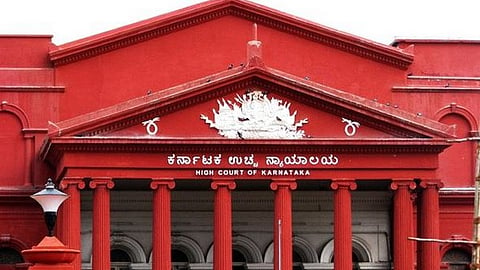

BENGALURU: The state government will soon have to cough up around Rs 800-1,000 crore which the energy department had collected as taxes from consumers on the minimum tariff (fixed charges) from 2003 to 2013.
The Karnataka High Court on June 20 issued an order stating that tax on minimum tariff is unconstitutional, and petitioners can seek claims for the amount paid, with proper documents. Following this, industries, low-tension and high-tension consumers are collating their bills to seek their refund. Some are also preparing applications to file before energy supply companies (Escoms), seeking bill details.
MG Balakrishna, president, Federation of Karnataka Chambers of Commerce and Industry (FKCCI) said it is a landmark judgment, and the government should note that it cannot levy unnecessary charges on consumers. Now, industries will file an appeal before court seeking refund, using this order. The industries body had fought a 17-year long battle.
‘Many textile industries shut down’
In 2009, FKCCI had filed a writ petition before the High Court, challenging the constitutional validity of amendments made to Section 3(1) of the Karnataka Electricity (Taxation on Consumption) Act, 1959. “These amendments had extended levying electricity tax on fixed charges or demand charges which impacted consumers. The court order declared as unconstitutional levying electricity tax on fixed charges and demand charges from 2003-13,” Balakrishna said.
Energy expert MG Prabhakar said the government had levied 20 paise per unit on LT consumers and 9% per unit on HT consumers. If this is calculated, it is over Rs 60-100 crore per annum and this amount was collected for 10 years. Consumers are also entitled to get the interest government agencies generated on the amount over the years. Karnataka Textile Mills Association president C Valliappa said due to high electricity tariff charges, many textile industries shut down.
The order is a relief, but has come late. Members of various industries associations said they were filing a petition on the government proposal to levy a cess on consumers for the installation of smart meters.
“The energy department is discussing with finance department to levy 2% cess on RDPR, UDD, BWSSB and other agencies that owe them around Rs 10,000 crore. As these agencies do not have money, the burden will be passed on to consumers, which is unconstitutional,” say industry experts.
An energy official said, “We don’t want to comment on the amount. We will go through the order copy which we are yet to receive. The amount to be cleared is also subject to bills the escoms have.”